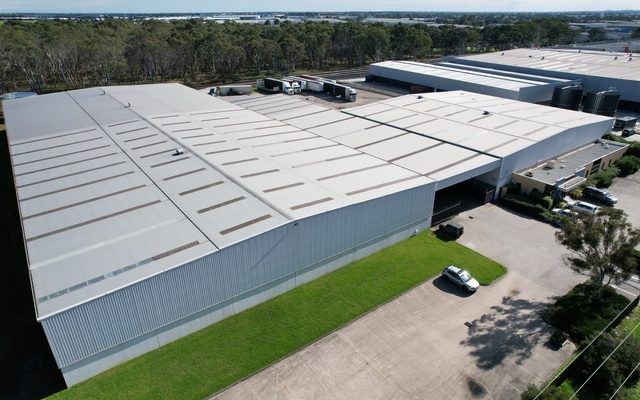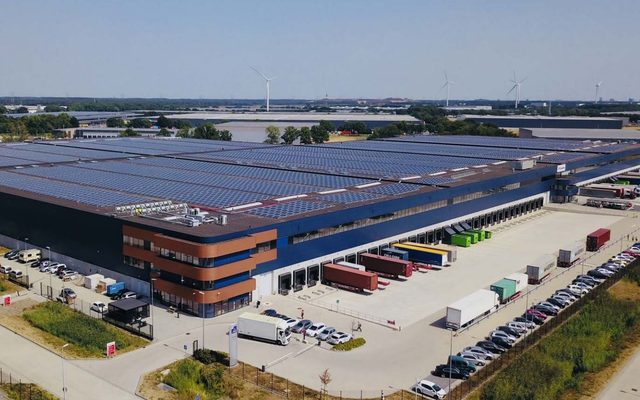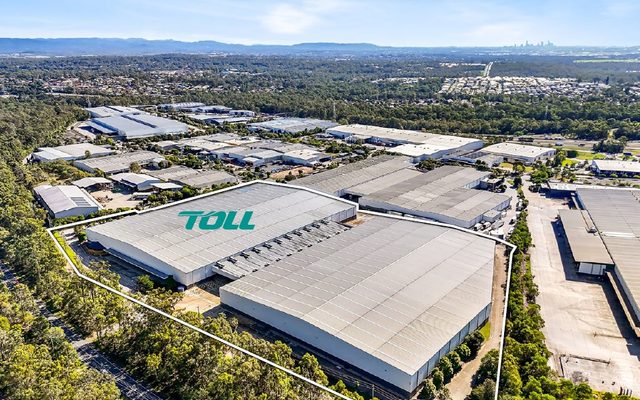This article is from the Australian Property Journal archive
DEVELOPERS seeking land new warehousing and logistics estates accounted for almost three-quarters of all industrial real estate transactions in the March quarter, according to JLL.
A total of $2.47 billion of logistics and industrial market transactions were recorded across Australia by the firm, a number it said reflected the sector’s resilience favourable fundamentals that continue to underpin investor confidence.
Developers spent up $1.81 billion during the three-month period, driven largely by large-scale land acquisitions in Sydney and Melbourne. Among those, UniSuper and ISPT acquired 280 hectares of controversial greenfield industrial development land next to the entrance of the under-construction Western Sydney International Airport, where they will build a $4 billion logistics estate. The deal came in at $862.4 million.
JLL’s head of industrial and logistics – (Australia), Peter Blade said the entire industrial sector had demonstrated exceptional resilience during uncertain economic periods.
“The recent trend of substantial land transactions signifies a considerable shift towards long-term investment strategies, as developers place confidence in the continued demand and performance of the Australian logistics and industrial market,” which he said “undoubtedly” ties to Australia’s “promising growth forecast and undeterred consumption patterns”
Geographically, transaction volumes were predominantly split between Australia’s two largest industrial markets, Sydney and Melbourne which accounted for 85.4% of the national total.
Melbourne saw $811.4 million of deals in the quarter, 76.4% above the long-term 10-year quarterly average of $460.0 million. This quarterly total was dominated by two major land acquisitions – UniSuper ’s acquisition of a 66-hectare site in Deer Park in a $260.0 million deal with Orica, while ESR and Frasers entered into a joint venture to secure a 64-hectare site in Cranbourne, paying $230.0 million to Salta Properties.
This week has seen logistics giant Qube make Australia’s largest automotive logistics play, with the $332.5 million acquisition of the Melbourne international ro-ro and automotive terminal (MIRRAT) from Oslo-listed Wallenius Wilhelmsen.
Driven by the Burra Park transaction, quarterly industrial transaction volumes in Sydney have exceeded $1.0 billion for consecutive quarters, reaching $1.3 billion in the March quarter. Back-to-back one-billion-dollar transaction quarters has only occurred once previously, at the peak industrial investment period in 2021.
Investment in other markets was more selective in the quarter with transaction volumes in Brisbane, Adelaide and Perth all at levels below the respective long-term, 10-year quarterly averages.
JLL’s director of strategic research – (Australia) Rick Warner said Australia’s population growth forecast is one of the strongest of all mature economies globally and “one thing we humans are good at is consume things”.
“So as our population grows, this will support the growth of our retailers and wholesalers, as well as the supply chain that support them.
“Developers have recognised this and are looking to future-proof development pipelines through opportunistic large-scale land acquisitions.
“Given that land is a finite resource, and ‘development ready’ serviced land is even scarcer, we’re seeing the prices developers are willing to pay reflect this.”
A Cushman & Wakefield survey revealed that 86% of investors favour the Australian logistics and industrial market over other commercial property sectors, ahead of debt markets and alternative assets, with $45 billion of capital circling warehouses and sheds down under.
One in two respondents confirmed that the gap in purchaser and vendor pricing expectations prevented capital deployment in 2023. Now, almost nine in ten plan to invest in Australian logistics and industrial assets in 2024.




